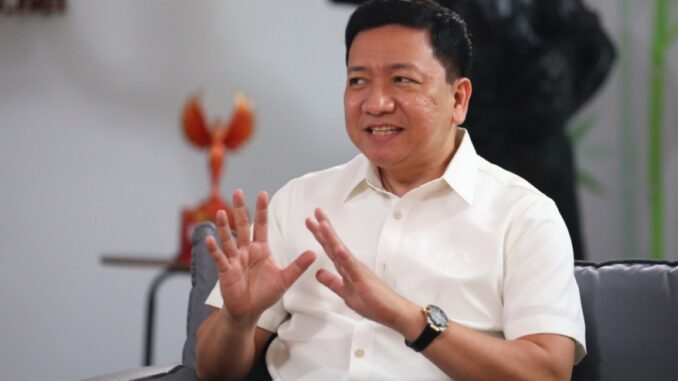
A RANKING official of the National Security Council (NSC) on Wednesday refuted Amnesty International’s (AI) recent report claiming that the Philippine government under the administration of President Ferdinand Marcos Jr. is stifling dissent and freedom of expression in the country.
NSC Assistant Director General Jonathan Malaya, in a statement, slammed the group for making “rash judgments” and called its report “one-sided, misleading, and baseless.”
“Freedom of expression in the Philippines is constitutionally protected, and we can see that in the robust and healthy traditional and social media environment where opinions are expressed freely every single day,” he added.
Undersecretary Jonathan Malaya. Photo by MIKE ALQUINTO
Malaya also claimed that AI’s report only provided a one-sided portrayal and failed to account for the Marcos administration’s efforts to protect freedom of speech and of the press.
“The NSC should have been given the opportunity to rebut each of their so-called findings before this was released to the public. This only fuels speculation that the report is more for propaganda purposes to vilify the state rather than an honest assessment,” Malaya said.
The NSC official said the agency wants to see the methodology used by the organization in coming up with its findings.
“What due diligence did they undertake to ensure that their respondents are unbiased and have no political agenda against the Marcos administration? Remember, it’s election season. How did AI choose their respondents? The government and the public have the right to know,” he said.
Malaya added NSC is willing to sit down with AI and discuss the report if it is open to a constructive, fair and balanced engagement.
He also took exception to the report’s portion, which claimed that the National Task Force to End Local Communist Armed Conflict (NTF-Elcac) shares numerous posts and press statements on its Facebook page where many young activists are allegedly vilified or falsely accused of being associated with armed groups.
“What the NTF-Elcac shares on its Facebook page are testimonies from expert witnesses, some of them former rebels, who speak about their own personal experiences. Most of these were given under oath in Senate hearings or in public fora. These individuals also have freedom of expression, which we cannot stifle,” he said.
Malaya said that NTF-Elcac’s online presence seeks to inform the public about the real threats posed by terrorist organizations, contrary to AI’s assertion that digital tools are weaponized against activists.
On the Anti-Terrorism Act, Malaya said Al’s report overlooked the law’s critical role in disrupting terrorist activities, which have decreased significantly since the law’s enactment.
“AI conveniently overlooked the fact that the Philippines is one of the countries heavily impacted by terrorist activities from the CPP-NPA-NDF (Communist Party of the Philippines-New People’s Army-National Democratic Front) to violent extremists in Mindanao. We have the last remaining communist insurgency in the world. In fact, we are still 19th in the Global Terrorism Act. We need an Anti-Terrorism Law,” he said.
He added the NTF-Elcac’s communication efforts are aimed at countering disinformation spread by extremist groups.
“Abolishing the NTF-Elcac would leave vulnerable communities exposed to insurgency threats, hinder the government’s ability to deliver essential services, and render all our efforts to end terrorism from the CPP-NPA-NDF futile,” Malaya said.
He urged the group to adopt a balanced and more objective and circumspect view of the situation rather than parroting the lines of NTF-Elcac’s detractors and to recognize the importance of countering violent extremism while respecting freedom of speech and human rights.


Be the first to comment